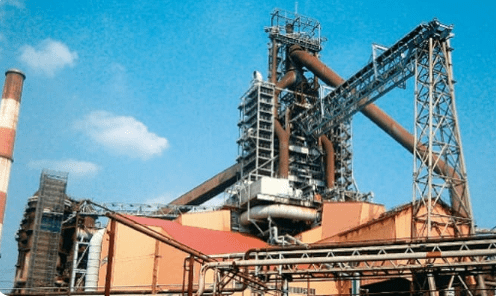President Joe Biden is gearing up to block Nippon Steel’s proposed $14.9 billion acquisition of U.S. Steel, sending a clear message that the iconic American steel company should remain under U.S. ownership. The potential deal has stirred controversy, with the Biden administration asserting that preserving American control of U.S. Steel is crucial for national security, economic stability, and maintaining the legacy of an industry that has been a backbone of American manufacturing for over a century.
The Proposed Takeover: Nippon Steel’s Ambitions
Nippon Steel, Japan’s largest steel producer, has made a bold move to acquire U.S. Steel in a deal valued at $14.9 billion. If successful, the acquisition would significantly expand Nippon’s global footprint and give the company access to key American markets and resources. U.S. Steel, headquartered in Pittsburgh, Pennsylvania, is one of the oldest and most recognizable names in American industry, with deep roots in the country’s manufacturing, construction, and defense sectors.
In an effort to address concerns from its US detractors, Nippon Steel released a statement on Wednesday assuring that US Steel would retain a board of directors predominantly composed of American citizens, and that the majority of the company’s management would also be Americans. Additionally, the statement guaranteed that there would be no relocation of US Steel’s production capacity or jobs abroad.
Biden’s Stance: Keeping U.S. Steel American-Owned

President Biden’s decision to intervene in the proposed takeover reflects his administration’s broader focus on protecting American industries and jobs. Since taking office, Biden has championed policies aimed at strengthening the domestic manufacturing sector, investing in infrastructure, and ensuring that key industries remain in American hands. The steel industry, which is essential for national defense, infrastructure projects, and various industries, is a priority.
The administration is reportedly exploring options to block the acquisition, including invoking national security concerns under the Defense Production Act or leveraging the Committee on Foreign Investment in the United States (CFIUS), which has the authority to review and potentially block foreign investments that threaten U.S. national security.
In a statement, Biden emphasized the importance of U.S. Steel remaining an American-owned company, citing its critical role in supporting national security and creating high-paying union jobs. He also stressed that U.S. Steel’s ownership is tied to the country’s economic future, particularly as the U.S. works to rebuild its infrastructure and secure supply chains in the face of global disruptions.
National Security Concerns
The potential acquisition of U.S. Steel by a foreign entity raises serious national security concerns, particularly given the company’s long-standing involvement in defense contracts and critical infrastructure projects. U.S. Steel has historically played a key role in producing the materials needed for military vehicles, ships, and infrastructure, making its ownership a matter of strategic importance.
Critics of the takeover argue that allowing a foreign company to control U.S. Steel could expose sensitive technologies, production capabilities, and supply chains to foreign influence, potentially undermining national defense efforts. These concerns are further amplified by the current geopolitical tensions, with global competition over resources, trade, and manufacturing intensifying, particularly between the U.S. and major economies in Asia.
Economic and Job Implications
In addition to national security issues, the Biden administration is also concerned about the potential economic impact of the deal on American workers. U.S. Steel is one of the largest employers in the U.S. manufacturing sector, and its operations are tied to tens of thousands of jobs in steel production, transportation, and related industries.
Biden, who has consistently positioned himself as a pro-labor president, has pledged to protect these jobs and ensure that American workers benefit from the continued success of U.S. Steel. The company’s future is closely tied to the president’s broader “Build Back Better” agenda, which includes significant investments in infrastructure projects that will require vast amounts of domestically produced steel.
The Global Steel Industry: Growing Competition

The proposed acquisition of U.S. Steel comes at a time when the global steel industry is undergoing significant changes, driven by shifts in demand, production technologies, and international trade dynamics. Steel production is a capital-intensive industry, and companies are increasingly seeking to consolidate resources and streamline operations to remain competitive.
Nippon Steel, already a dominant player in Asia, has been seeking opportunities to expand its global presence in response to growing competition from Chinese and European steel producers. Acquiring U.S. Steel would give Nippon access to North American markets and resources, helping the company diversify its supply chains and reduce reliance on domestic production in Japan.
However, this global competition also underscores the importance of protecting U.S. manufacturing capabilities, particularly in industries like steel, which are critical to national infrastructure and defense.
What’s Next?
As Biden prepares to block Nippon Steel’s bid, the move is likely to ignite a broader debate over foreign investment in U.S. industries and the role of the federal government in protecting key sectors. While the administration is focused on safeguarding U.S. Steel, it must also consider the broader economic and diplomatic consequences of its actions.
Nippon Steel is one of Japan’s largest companies, and blocking the acquisition could strain U.S.-Japan relations at a time when the two nations are strengthening their economic and military ties in response to regional threats in Asia. The Biden administration will need to carefully navigate these diplomatic considerations while staying firm on its commitment to protecting American economic interests.

